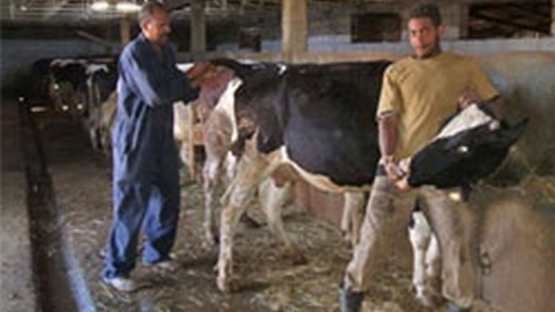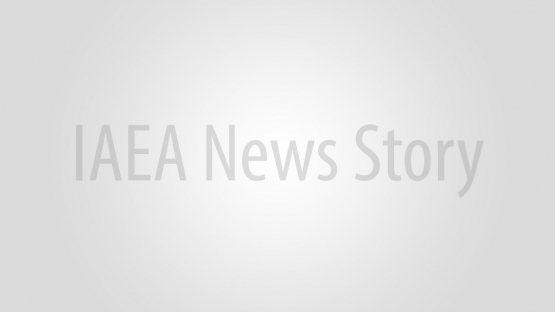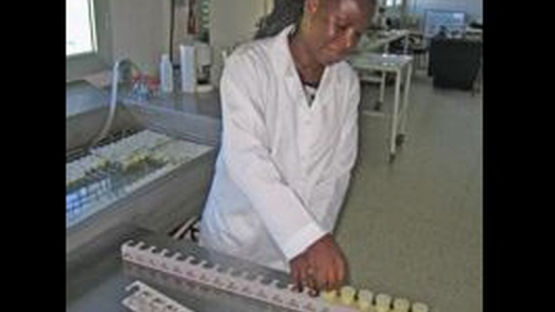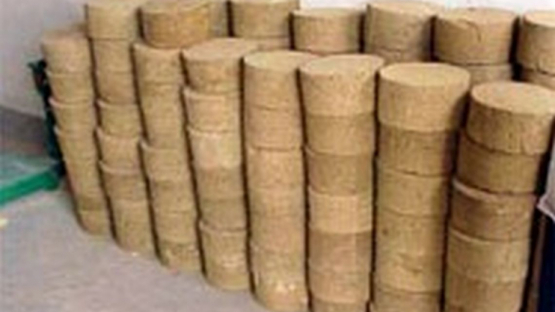Livestock highlights

IAEA's Support Helps Eritrea to Controlling Brucellosis and Tuberculosis in Cattle
The IAEA started to support the veterinary services of Eritrea in the late 1990s when the country requested help with their rinderpest eradication programme. The IAEA provided technical assistance in the setting-up of a diagnostic laboratory and the training of staff to allow for the sero-monitoring and sero-surveillance of animal diseases with specific reference to rinderpest.

Avian Influenza, Migratory Birds and Stable Isotopes
Over 100 species of wild migratory birds, particularly ducks, swans, geese and various wading birds, harbour avian influenza (AI) viruses. Infections are transmitted amongst the wild birds by shedding of the virus and contamination of water.

Adapting Molecular Diagnostics to Field Conditions
Enhancing food security by providing effective control of infectious diseases in livestock requires major investment in developing diagnostic technologies of sufficient sensitivity and precision to enable veterinary authorities to accurately identify animal carriers of disease and to carry out appropriate measures for containing an outbreak.

Irradiated Vaccines and the Control of Animal Diseases
Animals in general possess a basic defence against pathogens known as innate immunity. This comprises two parts, humoral, referring to substances found in the body fluids such as tears, mucus, and blood that can prevent the development of pathogens so that they can be eliminated from the body and the second, cellular, where cells called phagocytes ingest pathogens.

Water Efficiency of Animal Protein Production
The livestock sector is the fastest growing agricultural sector and has been predicted to continue growing at these rates for the foreseeable future.

IAEA Counterparts Produce a Calf via Embryo Transfer for the First Time Ever in Sri Lanka
A team of veterinary researchers and IAEA counterparts at the University of Peradeniya in Sri Lanka have successfully produced a calf through embryo transplant technology.

Neighbours Helping Neighbours: Kenya Hosts Fellow from Tanzania
The IAEA, through TC project URT5025 based at the National Artificial Insemination Cooperation (NAIC) at Usa River Arusha, United Republic of Tanzania, granted Ms. Mary A. Shio a two month fellowship in Kenya hosted by the Kenya Agricultural Research Institute (KARI), Lanet Research Center.

APU and the Vienna Veterinary School Collaborate to Host Fellow from Sierra Leone
Sierra Leone continues to benefit from the International Atomic Energy Agency (IAEA) through the implementation of IAEA Technical Cooperation (TC) projects by utilizing peaceful nuclear techniques to accomplish national development goals.

Germany Hosts Fellow from Myanmar in Animal Nutrition
Dr. Myint Wynn from the Veterinary Assay Laboratory of the National Livestock Breeding and Veterinary Department of Myanmar recently completed a 3-month fellowship in Germany (from 10 January to 9 April, 2007).

Myanmar Fellow Obtains Animal Production Training in India
Mr. Ye Tun Win from Myanmar was recently hosted as an IAEA fellow at the Department of Animal Reproduction, Gynaecology and Obstetrics of the Guru Angad Dev Veterinary and Animal Science University, Ludhiana, Iindia. He was supervised by Dr. A. S. Nanda and Dr. Parkash Singh.

Improvement of Livestock Productivity through an Integrated Application of Technologies
Scientists Receive Training on Participatory Approaches

Burkina Faso Fellow Obtains RIA Training in Tunisia
Mme. Gisele Marie Sophie Ouadreago from Burkina Faso spent from 25 September to 25 November 2006 at the Ecole Nationale de Medecine Veterinaire in Sidi Thabet, Tunisia on a fellowship visit in relation to TC project BKF/0/002, "Human Resource Development and Nuclear Technology Support".

Sierra Leone Fellow Receives Training on Cattle Reproduction in Kenya
African nations exchange knowledge and experience as Kenya hosts fellow from Sierra Leone.

Technology Transfer: Use of Urea Molasses Multinutrient Blocks in over 50 Countries
Urea molasses multinutrient blocks have been found to be highly beneficial in all member states(MS). The cost: benefit analysis of block use in dairy cattle averaged 1:3.3.

New Molecular Methods for Studying Genetic Diversity of Bulgarian Livestock Breed
Bulgaria has long tradition in animal breeding, largely based on selection programs supported by the government. The Bulgarian livestock is genetically diverse and has become a subject of serious scientific interest in the last years.

IAEA Collaborating Centre in Brazil Provides Training in DNA Analysis Training to Peruvian Fellow
Mr. Juan Agapito Panta from the Instituto Peruano de Energia Nuclear (IPEN) undertook two months (March to May 2006) of training at the Laboratory of Biochemistry and Molecular Biology of Livestock at the Veterinary Faculty of the Universidade Estadual de Sao Paulo (UNESP), Aracatuba, Brazil.

Korea Hosts Regional Training Course on Selective Breeding and Gene Technologies
As part of Regional TC Project RAS/5/044: "Integrated Approach for Improving Livestock Production Utilizing Indigenous Resources and Conserving the Environment", a training course was held on Selective Breeding and Gene Technologies.

IAEA Teams with ILRI to Present Training Course on DNA Analysis of Small Ruminant Genetic Resources
1st October-30th November 2005, ILRI, Nairobi, Kenya.
- ‹ previous
- 3 of 3

